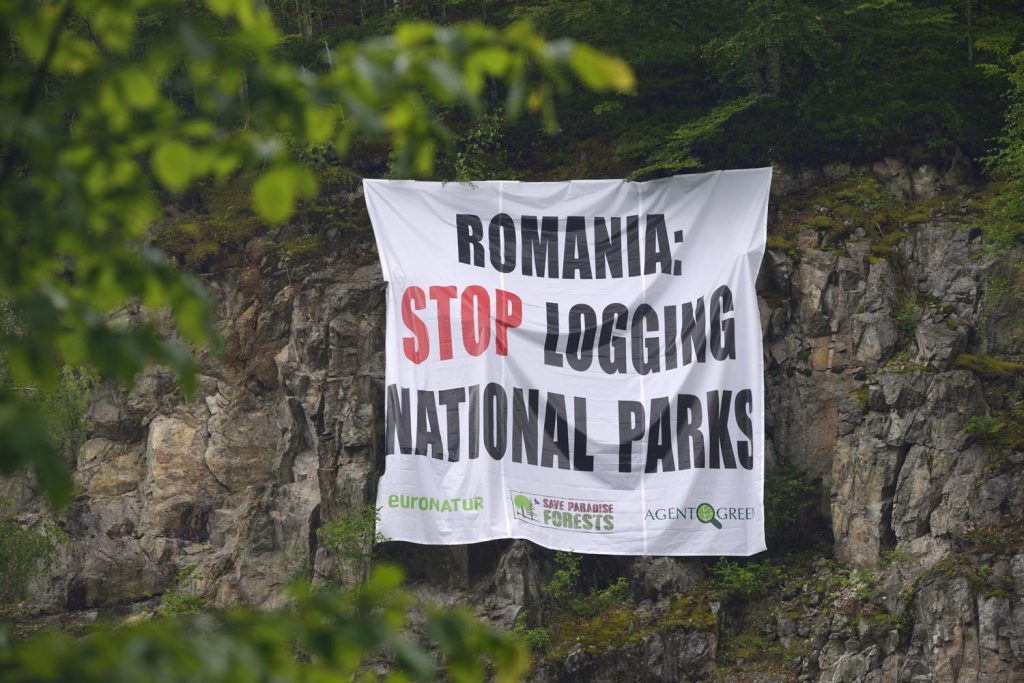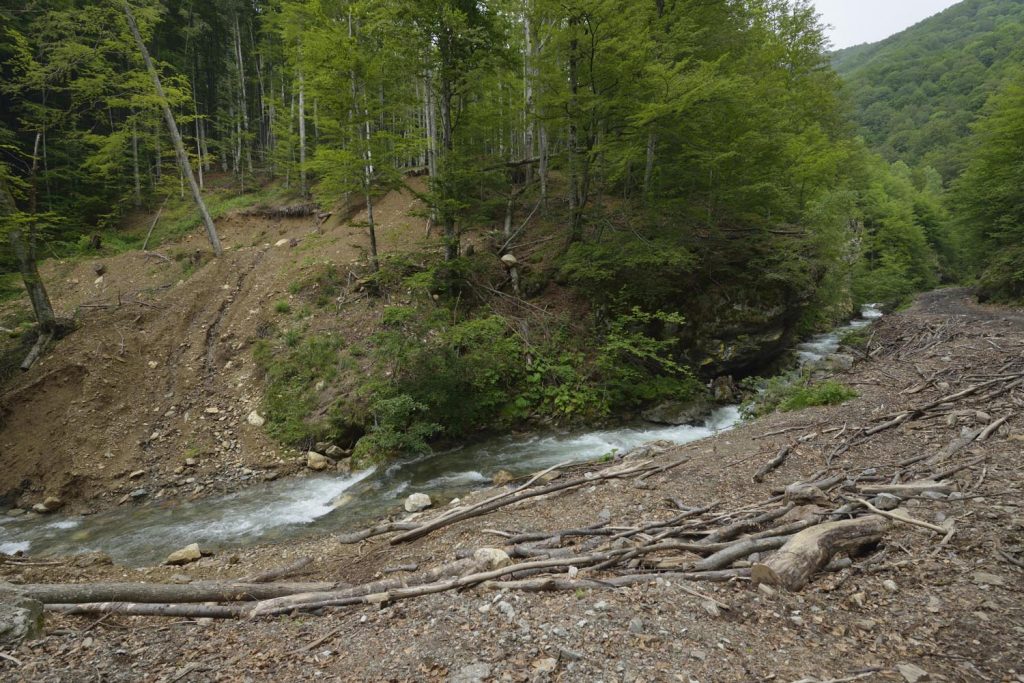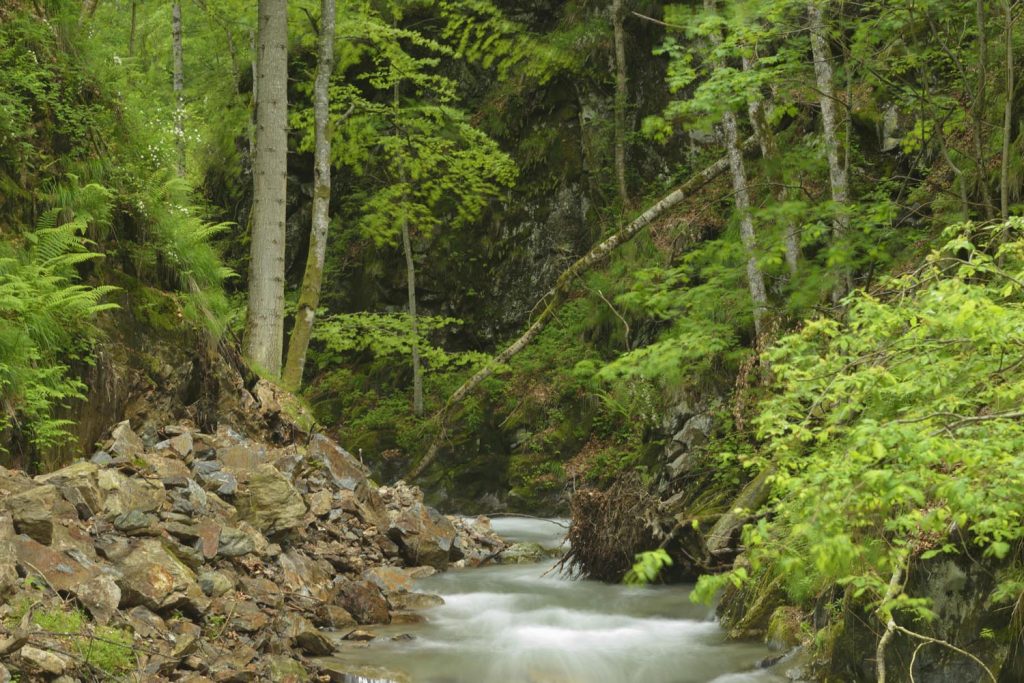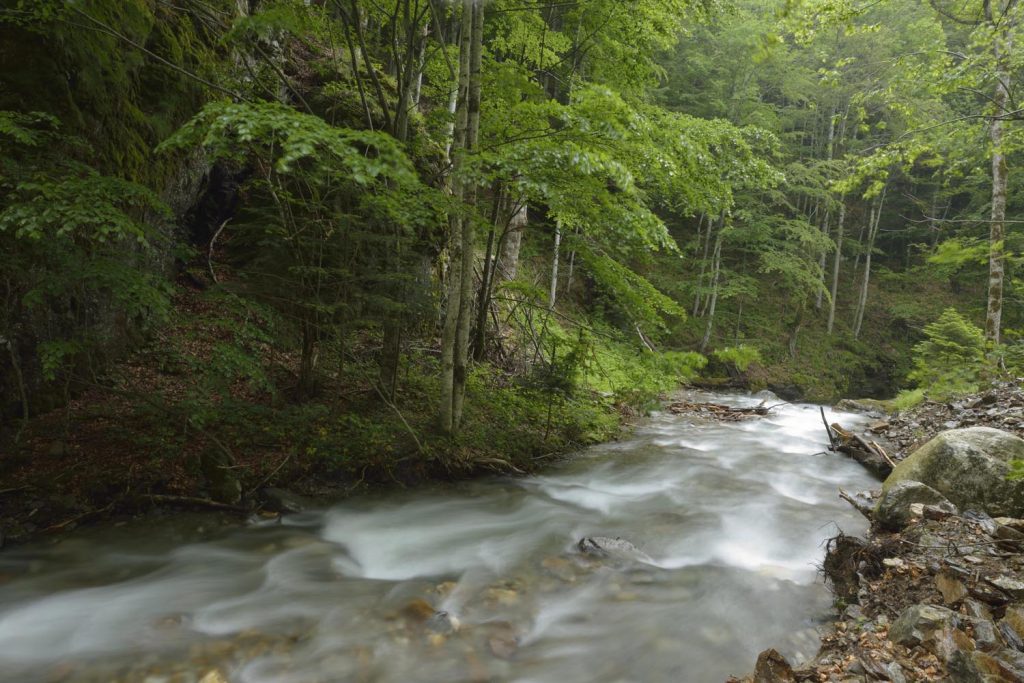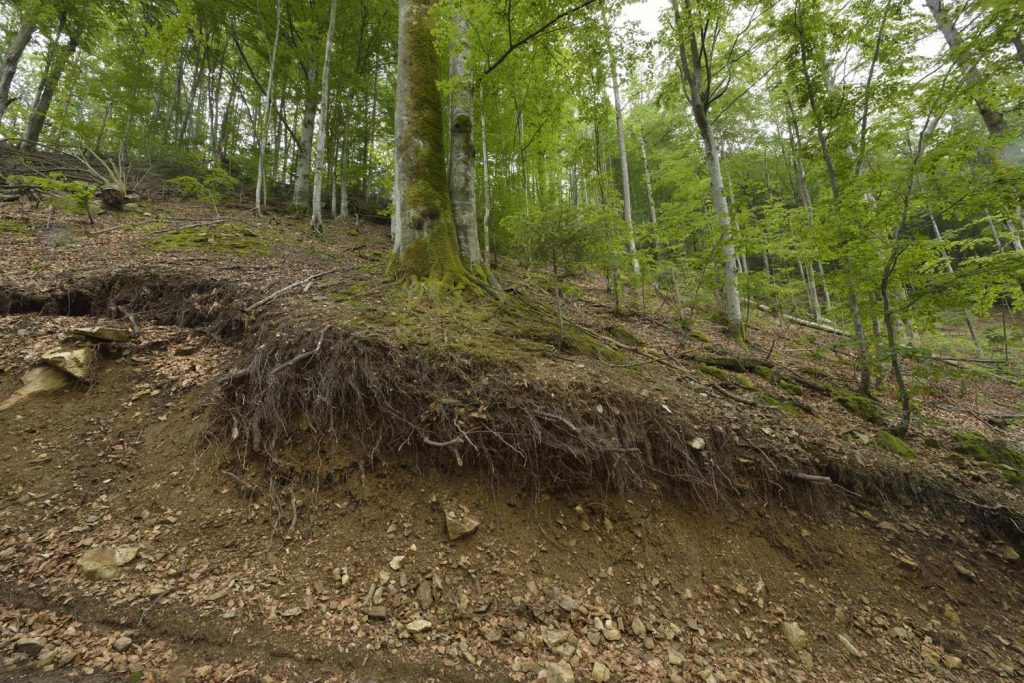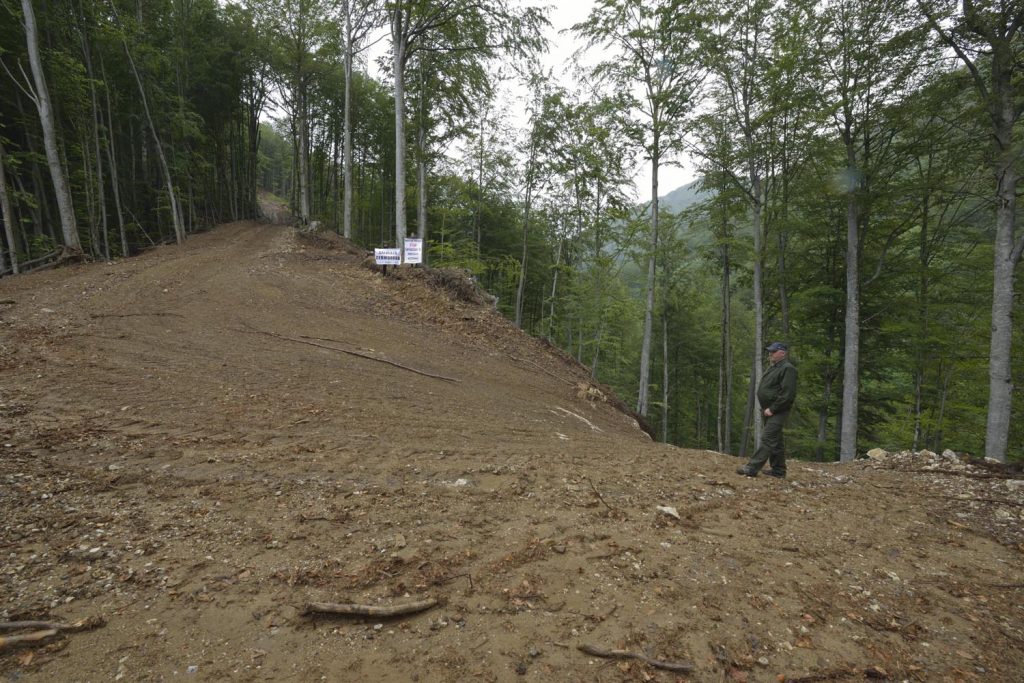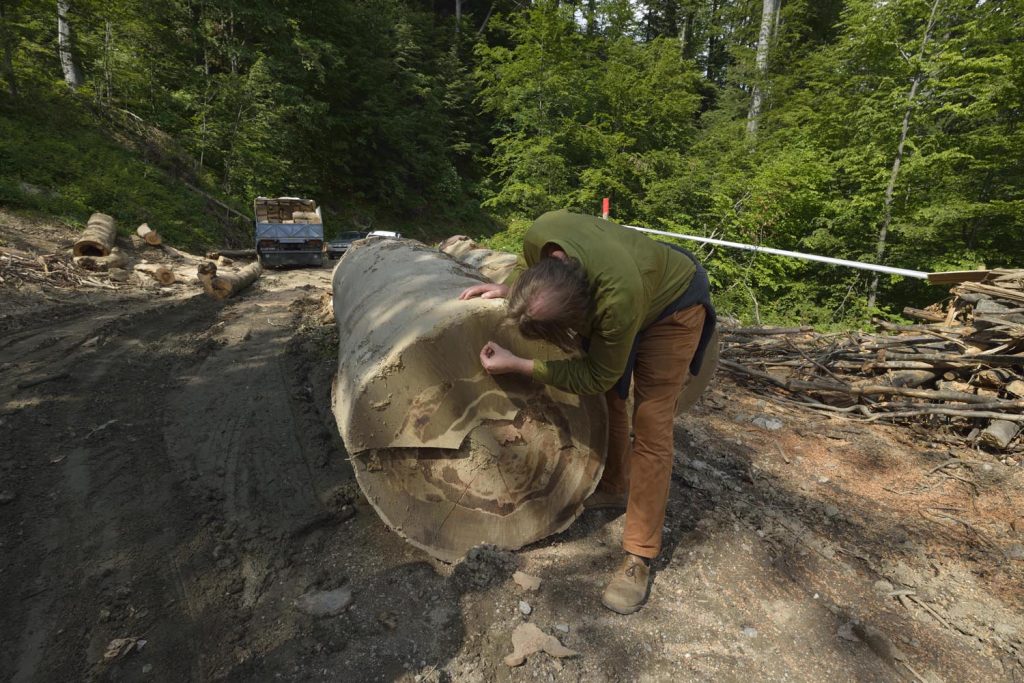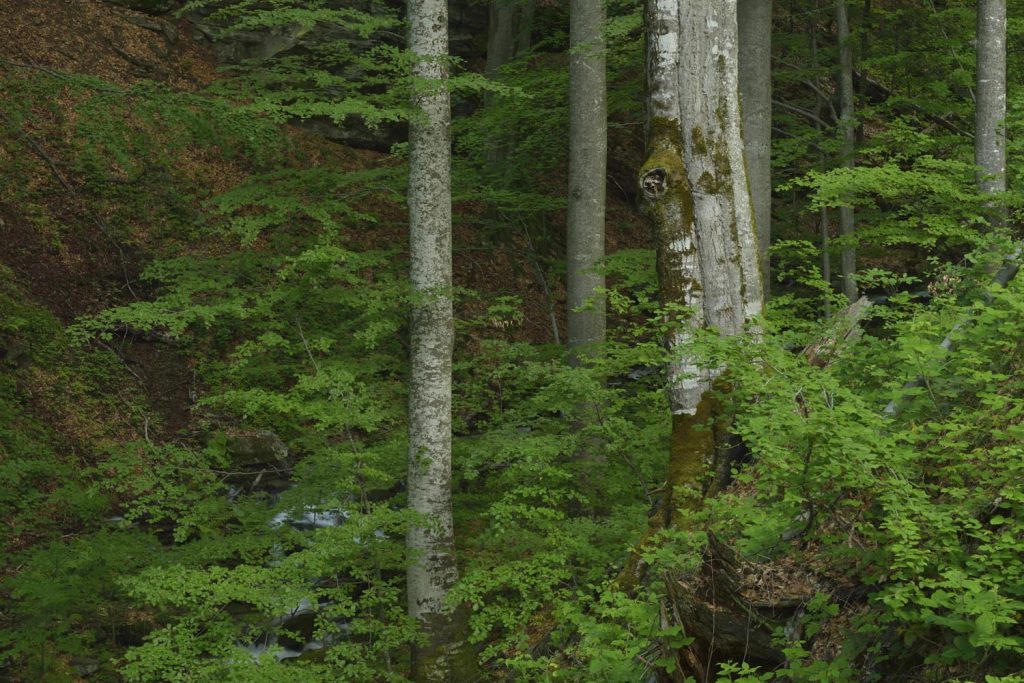Investigative video footage reveals scandalous logging in Romania’s Cheile Nerei-Beusnita National Park
New video evidence published today by environmental NGOs Agent Green and EuroNatur Foundation clearly demonstrates that forest destruction in Romania’s Cheile Nerei-Beusnita National Park is comprehensively out of control. Logging of old growth forests is being deliberately driven by state forest enterprise Romsilva. At least 60 percent of the national park is being treated like a logging site, not as a protected area. Agent Green and EuroNatur Foundation call on the Romanian Ministry for Environment to immediately stop commercial logging in national parks and to dismiss Romsilva from managing protected areas.
Agent Green investigator and journalist Andrei Ciurcanu witnessed the scandalous logging in old forests, destruction of protected travertine-rock sites, inexcusable incompetence and ignorance of nature conservation responsibilities by national park staff, and pressure being applied from state foresters on national park managers and scientists in order to increase logging in the national park.
OUT OF CONTROL #ep3 Cheile-Nerei National Park from AGENT GREEN on Vimeo.
Romania hosts an estimated two thirds of the EU’s remaining primary forests. But huge tracts of logging are continuously destroying this important sanctuary of European natural heritage, even in national parks and EU Natura 2000 protection sites. Romania has been systematically ignoring international obligations like IUCN standards and many thousands of hectares of supposedly protected forests have been destroyed in the last 10 to 15 years. Today, large areas of national parks look like badly managed logging sites.
The major driver of this disaster for nature is apparantly Romania’s state forests enterprise Romsilva, which manages 12 of 13 national parks. All of them suffer from heavy logging pressure. It is clear that the Romanian Government turns a blind eye and tolerates enormous levels of commercial logging on more than 50% of the national park surface.
In the investigative video, the former national park director Stefan Dascalu admits that strong pressure was applied from the state forests administration to increase logging in the so called national park “buffer zones”. The planned strictly protected zone of the park was downsized to only 39 percent due to pressure from Romsilva in order to boost logging areas and volumes. Logging operations with large logs and heavy machines even damaged rare travertine formations, which are under protection by EU legislation. When confronted with the evidence, Romsilva foresters pretended to be badly informed and blamed the national park administration: “We do not know what is protected. It is not our job”, they said. The current national park director physically ran away from the investigation team and information requests regarding logging volumes were not answered.
“Logging in Romania’s national parks spreads like cancer. This scandal is out of control. The Government is doing nothing to protect our natural heritage. It is a national shame that Romania continues to destroy some of Europe’s most precious natural heritage“, Gabriel Paun, President of Agent Green said.
“The logging drama in Romania is currently the most pressing nature crisis in Europe, but still largely unseen. The EU Commission has to become immediately active and involved in order to stop the destruction. After the terrible forest fires in many areas of Europe this summer, the proper protection of our last intact natural forests has become even more important“, Gabriel Schwaderer, CEO from EuroNatur Foundation stated.
On April 26 Agent Green handed over 76,120 signatures from Romanian citizens to Environmental Minister and Vice Prime Minister Gratiela Gavrilescu, demanding an immediate logging ban in national parks. Unfortunately no action has taken place.
Agent Green and EuroNatur urge the Romanian Environmental Minister to immediately stop commercial logging in national parks, dismiss Romsilva from managing national parks and other protected areas, implement modern and nature conservation oriented management systems, provide adequate funds to properly manage protected areas and to compensate private land owners in protected areas for nature conservation objectives.
The campaign initiative „Out of control“ exposes the environmental disaster that is the logging and loss of irreplaceable old growth forests in Romania’s national parks. Three new episodes showing the ongoing logging in primeval and old growth forests in Romania’s national parks will be published in the weeks to come.
Here you can view the previous “Out of Control” episodes about the alarming devastation of Romania’s Domogled – Valea Cernei and Semenic – Cheile Carasului national parks.
